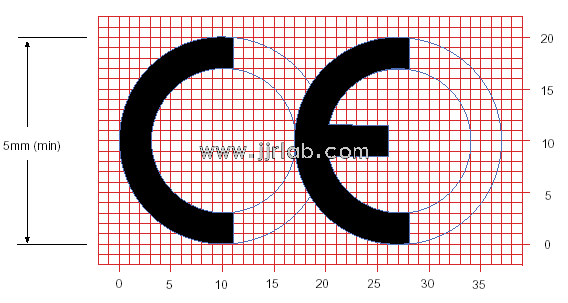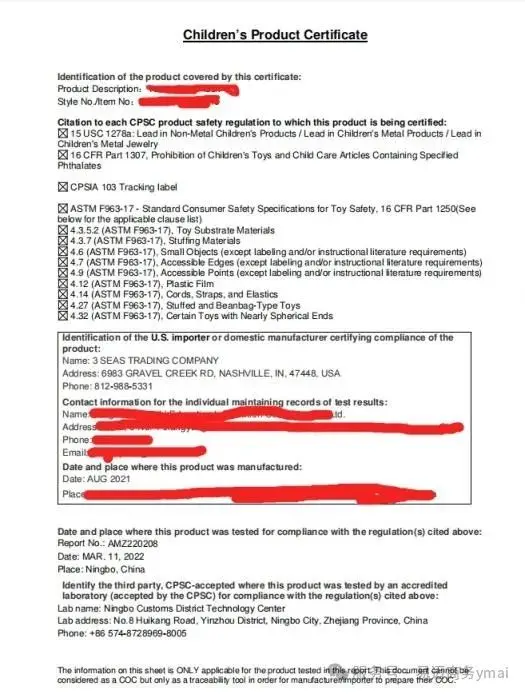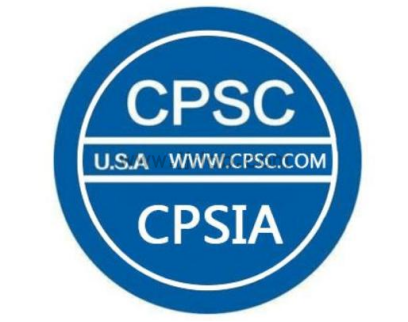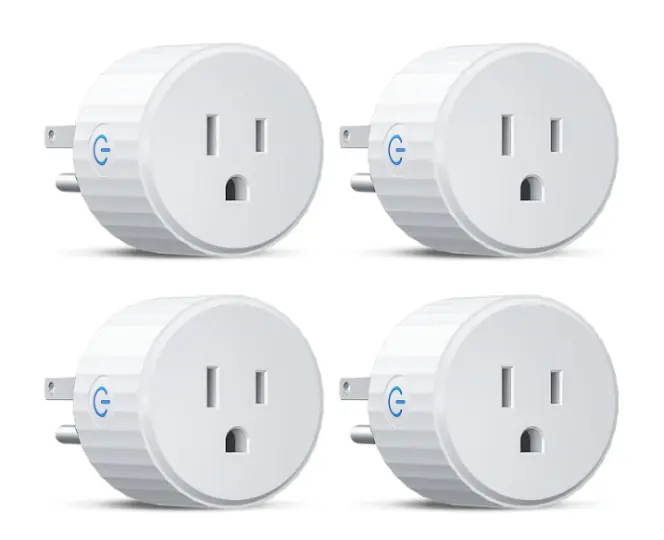
Can CE Certification Be Sold in the USA?
The “CE” mark is a safety certification mark that is considered the passport for manufacturers to enter and access the European market.
In the European Union (EU), the CE mark is a mandatory certification. Whether a product is made within the EU or in another country, to circulate freely in the EU market, it must bear the CE mark, indicating that the product meets the essential requirements of the EU's "New Approach to Technical Harmonization and Standardization" directives. This is a legal requirement imposed by the EU on products.
Some countries outside the EU, including Turkey and the UK, accept the CE mark for certain products. Additionally, several other regions or countries recognize certain aspects of the CE, such as EN standards.

United Kingdom
Since Brexit, after several delays requiring the use of the UK Conformity Assessed (ukca) mark, the UK government’s Department for Business and Trade (DBT) announced on August 1, 2023, that the use of the CE mark would be indefinitely extended for businesses.
The indefinite use of the CE mark in the UK applies to the following product categories:
- Toys
- Fireworks
- Machinery
- Aerosols
- Lifts
- Electromagnetic Compatibility (EMC)
- Measuring instruments
- Gas appliances
- Pressure equipment
- Radio equipment
- Measuring containers
- Simple pressure vessels
- Outdoor equipment
- Personal Protective Equipment (PPE)
- Low-voltage electrical equipment
- Recreational craft and personal watercraft
- Non-automatic weighing instruments
- Equipment for potentially explosive atmospheres (ATEX)
Turkey
Although Turkey is not an EU member, it has adopted the "CE Marking Regulation," making the CE mark mandatory for products under the CE framework.
This regulation outlines the requirements and compliance obligations for manufacturers and importers of products under the CE framework.
Manufacturers and importers must:
- Comply with the relevant "harmonized standards" from European standardization bodies
- Draft technical documentation
- Implement conformity assessment procedures
- Develop a Declaration of Conformity (DoC)
- Affix the CE mark and labeling on the product
- Retain technical documents and the DoC within the timeframe specified by relevant regulations
Switzerland
Switzerland has signed a Mutual Recognition Agreement (MRA) with the EU, covering uniform requirements for products under the agreement.
The MRA includes categories such as:
- Machinery
- Medical devices
- Electrical equipment
- Construction products
- Lifts
- Disinfectant products
For products covered by the MRA, manufacturers and importers only need to conduct one conformity assessment by a recognized conformity assessment body based on either EU or Swiss regulations to sell products in both markets.
If Swiss regulations require a conformity mark, the CE mark can be used as a substitute. For example, radio equipment importers and manufacturers must comply with either the Swiss conformity mark (CH mark) framework or the CE mark framework under the Radio Equipment Directive.
However, for products where Swiss and EU regulations do not align (e.g., hot water boilers or measuring instruments), the products must be manufactured to Swiss requirements when imported or produced in Switzerland.
Norway
Norway, although not an EU member, is a member of the European Free Trade Association (EFTA). Therefore, it follows the CE marking framework.
This means that companies importing or manufacturing products covered by the Norwegian CE marking directives or regulations must comply with the relevant EU requirements.
Iceland
Iceland, also an EFTA member, is not an EU member, but it adheres to the CE marking framework for products covered by one or more CE marking directives or regulations.
Liechtenstein
Liechtenstein is an EFTA member as well, and it requires that importers and manufacturers comply with all relevant CE marking regulations and requirements before placing products on the market.
### Israel
The EU has signed a Mutual Recognition Agreement (MRA) with Israel to promote free trade, market access, and coordination of standards between the EU and Israel.
The MRA specifies conditions under which both parties recognize conformity assessment results, including tests or certifications conducted by EU or Israeli conformity assessment bodies (CABs).
The MRA covers products such as:
- TV reception converters
- Cosmetics
- Industrial chemicals
- Pharmaceuticals
- Food additives
Israel has issued an amendment to the Radio Report Regulations (5722-2022), which reportedly allows the use of EU standards for radio equipment testing reports and other documents (e.g., technical files, DoC) for Israeli type approval.
### Republic of North Macedonia
As an EU candidate country, North Macedonia must align its technical regulations with EU legislation, standards, and norms before joining the EU, including making the CE mark mandatory for certain products.
Relevant parties must affix the CE mark to demonstrate their products meet the following requirements:
- Electrical safety
- Electromagnetic compatibility
- Energy efficiency
### Serbia
Serbia, although not an EU member, has adopted many EU regulations. Currently, Serbia applies CE marking directives and regulations for specific product categories, including:
- Electrical appliances
- Toys
- Machinery
- Personal protective equipment
- Pressure equipment
- Lifts
- Measuring instruments
Products in these categories must comply with the relevant CE marking directives and regulations.
### Montenegro
Montenegro, not an EU member, has its own standardization system. Currently, Montenegro allows the import of electronic devices that meet the EMC directive and Radio Equipment Directive with the CE mark.
Additional requirements for importers or manufacturers include:
- The product must include a user manual written in Montenegrin.
- The product must have warnings or safety statements in Montenegrin (if applicable).
Singapore
The Singapore Enterprise Development Board’s approved list of standards and certificates includes the “CE mark.” While there is no evidence that you can directly import or sell CE-marked goods in Singapore unless they also comply with local regulations,
the Consumer Protection (Consumer Goods Safety Requirements) Regulations (CGSR) require certain products to meet EN, ASTM, ISO, or IEC standards.
For instance, toys must meet one of the following standards:
- EN 71
- ASTM F963
- ISO 8124
If your product already meets EN 71 (a standard harmonized with the EU’s Toy Safety Directive), you may use the related test reports to demonstrate compliance with Singapore regulations. However, other requirements, such as substance restrictions, may also apply.
Australia
Australia has independent requirements for approval and certification, so the CE mark cannot be used as the basis for compliance.
However, many AS/NZS standards’ testing methods are similar to those set by equivalent EN standards. This means that if you have a valid test report based on EN standards, you may only need partial testing to meet AU/NZ standards.
Additionally, the Therapeutic Goods Administration (TGA) in Australia accepts CE conformity assessments and documentation for medical devices under the EU Medical Devices Regulation (MDR).
Canada
Canada signed the Comprehensive Economic and Trade Agreement (CETA) with the EU in 2017, promoting free trade and market access. However, this does not mean Canada recognizes the CE mark.
Canadian regulators may accept EN standards as test standards for certain products.
For example, Health Canada has proposed revising the Toy Regulations under the Canada Consumer Product Safety Act to adopt certain elements of EN 71-3 standards related to migration limits for specific elements.
However, manufacturers or importers must still comply with Canada’s general regulatory requirements, including labeling, documentation, and testing requirements.
United States
The CE mark is not recognized in the United States. Products sold in the U.S. must comply with applicable federal or state standards and regulations, such as CPSIA for children’s products or FCC 47 CFR Part 15 for electronic products.
It should be noted that some U.S. states have adopted RoHS, but only in terms of material restrictions.
Email:hello@jjrlab.com
Write your message here and send it to us
 Toy Toxicology Testing CA
Toy Toxicology Testing CA
 CPSIA Compliance for Children's Products
CPSIA Compliance for Children's Products
 Food Contact Items Testing
Food Contact Items Testing
 Energy Star Testing Laboratory
Energy Star Testing Laboratory
 Do I Need to Test Every Color for CPSIA Compliance
Do I Need to Test Every Color for CPSIA Compliance
 Accredited Medical Device Testing Lab
Accredited Medical Device Testing Lab
 Safety Testing for Baby Wrap
Safety Testing for Baby Wrap
 United States Electrical Plug Certification
United States Electrical Plug Certification
Leave us a message
24-hour online customer service at any time to respond, so that you worry!




